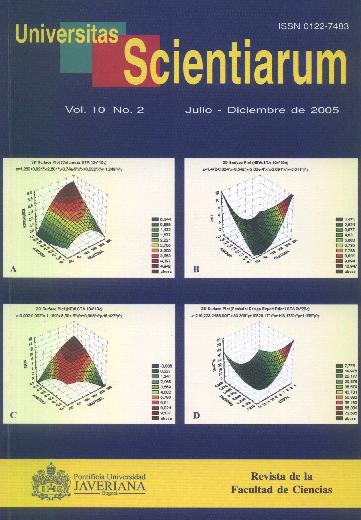Abstract
The influence of sodium glutamate as a supplement to Latham Mueller medium, while using bubbling nitrogen flow as an anaerobic agent and superficial aeration as an inducer of cell lysis and as a mechanism for the haulage of gases in the fermentation processes was evaluated. Using the Clostridium tetani Massachusetts’s strain, several five (5) liter batch fermentations were carried out for tetanus toxin production under the following conditions: Latham Mueller medium, with or without sodium glutamate, nitrogen flow and superficial aeration. The results demonstrated that the addition of sodium glutamate (2.5 g/l), combined with a bubbling nitrogen flow (0.33 l/min) and superficial aeration (0.33 l/min), produced asignificant increase in cell concentrations, repressing the tetanus toxin formation; while the gas flow (nitrogen and superficial aeration) without sodium glutamate improved the toxin production by approximately 49%, providing conditions for the following outcomes: a maximum toxin level of 73 Lf/ml; a toxin formation rate of 1844.0 Lf/l.h; and, an over-all productivity of 833.5 Lf/l.h.Univ. Sci. is registered under a Creative Commons Attribution 4.0 International Public License. Thus, this work may be reproduced, distributed, and publicly shared in digital format, as long as the names of the authors and Pontificia Universidad Javeriana are acknowledged. Others are allowed to quote, adapt, transform, auto-archive, republish, and create based on this material, for any purpose (even commercial ones), provided the authorship is duly acknowledged, a link to the original work is provided, and it is specified if changes have been made. Pontificia Universidad Javeriana does not hold the rights of published works and the authors are solely responsible for the contents of their works; they keep the moral, intellectual, privacy, and publicity rights. Approving the intervention of the work (review, copy-editing, translation, layout) and the following outreach, are granted through an use license and not through an assignment of rights. This means the journal and Pontificia Universidad Javeriana cannot be held responsible for any ethical malpractice by the authors. As a consequence of the protection granted by the use license, the journal is not required to publish recantations or modify information already published, unless the errata stems from the editorial management process. Publishing contents in this journal does not generate royalties for contributors.



